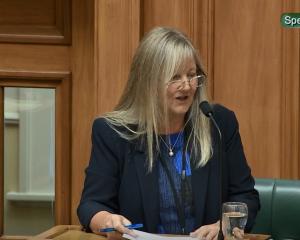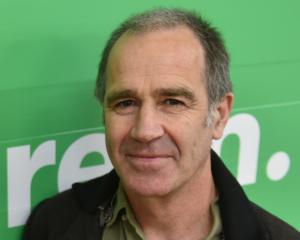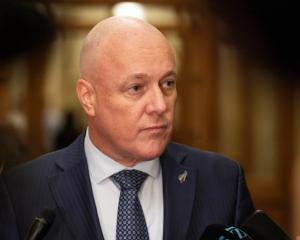New guidelines for sex education will be released in a few weeks, but the Government will shy away from ordering schools to teach more than basic biology
The Ministry of Education is due to release the new blueprint in December, nine months after an advisory panel recommended teens be taught respectful attitudes as a core part of the overhaul.
The health select committee recommendations were designed to push the focus of what teens learn beyond the physical mechanics of sex and reproduction after an 18-month inquiry found "fragmented and uneven programmes", which it partly blamed for the high teenage pregnancy rate.
But the ministry has signalled the health and physical education component of the curriculum, which includes sexuality, is not changing.
Neither will the ministry recommend when or what sexuality issues are taught, either at primary or secondary level. Instead, schools will be left to make those decisions. "Schools know their students and are best-placed to decide when sensitive issues like sexuality education are covered," deputy secretary of student achievement Dr Graham Stoop told the Herald on Sunday.
A rape prevention group is accusing the ministry of side-stepping the issue, despite public outrage over the Roast Busters scandal and a climate where porn and online dating are becoming the norm.
Rape Prevention Education executive director Kim McGregor said there was a woeful lack of knowledge about sexual violence.
"It would be tragic if sexual violence prevention was not mandated through all high schools," said McGregor.
She said many teenagers turned to the internet and pornographic websites for sex education, leading to a distorted view on sexual activity with many girls not realising they were being treated in a degrading and unacceptable manner.
Green MP Kevin Hague, who sat on the health select committee that recommended the overhaul, said too many schools were delivering
sub-par programmes to students.
"It's crazy for schools to get government funding to deliver programmes that are ineffective."
These included lesson plans that were moralistic, shunned frank information and didn't equip young people for the emotional context of sexual behaviour.
The select committee recommended the Government give schools two years to create programmes that meet Ministry of Health standards. The Education Review Office would monitor whether schools were meeting the needs of students of all cultures, ethnicities and sexual orientations.
New Zealand Principals' Federation president Phil Harding supported the ministry position, saying schools and their communities were best placed to make decisions around what was taught.
"It recognises the different challenges for students living in South Auckland than a small, isolated rural community where students are much slower to talk about discarded condoms."
He said the health curriculum was the only subject that required a mandatory "conversation" between the school and community every two years.
Stoop said the new guidelines would give greater clarity on the issues schools need to think about before covering the subject with students.
This included how best to communicate with parents and the school community before covering sexuality-related matters.
Once the guidelines were updated the ministry would again consult with the sector.Let's talk about sex ... and love, respect and consent, p18
By Lynley Bilby of the Herald on Sunday












